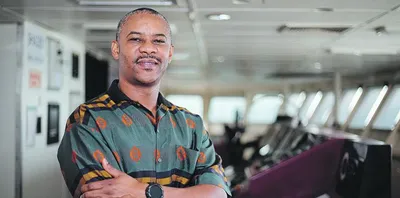
Ten Questions with: Reinhold Titus
1. How did you become a Christian?
I was born into and raised in a nominal Christian home. While attending university, I attended a camp organised by an interdenominational youth organisation. The Lord revealed Himself to me through His Word and Spirit. However, it took me a few days of pondering on the decision and implications of committing my life to Him. I did so one afternoon while in my room, being convicted of His love, sacrifice and my need to know and walk with Him.
2. What lessons have you learnt since that you would want to pass on to a younger Christian version of yourself?
I don’t know if I would do anything any differently. I made mistakes, but that was part of the growth process. I was privileged having people alongside me who took discipleship and mentoring seriously and did it with me when I came to faith. That included the awareness that faith was not only a personal matter but communal and expressed in acts of service.
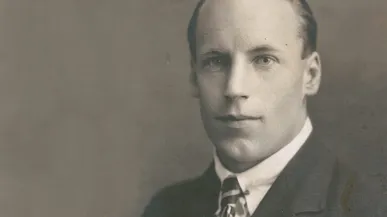
Olympics then and now: What can Eric Liddell teach us today?

Luke Randall
Date posted: 1 Jul 2024
The Olympic Games are almost upon us. They start in Paris on 26 July and countless storylines will inevitably surround what is arguably the world’s biggest sporting event.
Can Novak Djokovic finally claim the gold medal, the one accolade which has eluded him during his glittering career, in what is surely his last realistic chance to win it? Can Tom Daley win a fifth Olympic medal? Can Simone Biles become the most decorated American gymnast in Olympic history? These are just some of the headlines which will fill papers around the globe as the games draw near.

How to live in a ‘negative world’
Kenneth Brownell
Date posted: 1 May 2024
Aaron Renn is one of the most perceptive commentators on American evangelicalism as well as the broader culture.
A few years ago, he turned an online post into an article for First Things, an influential American journal on Christian public engagement, in which he described what he called the three worlds of evangelicalism. It became one of the most read and talked-about articles in the Christian world and even the secular media in the United States. He has now turned the article into a book.

Social media and our children
Glynn Harrison
Date posted: 1 Jun 2024
If you missed all the headlines about the link between smartphones and the epidemic of mental illness in children and young people, then you have not been paying sufficient attention to your social media feed.
The demand for young people’s mental health services currently stands at record levels. It began around 2012, which saw a sharp uptick in rates of childhood anxiety, depression and self-harm. And since then, the graphs have continued their upward march. Even sceptical mental health epidemiologists like me, who prefer to look at data from several different sources before making up their minds, now believe that something serious is happening to our children.

What shapes your faith? The Trinity?

Michael Reeves
Date posted: 1 Apr 2024
‘God is love’ (1 John 4:8). Those three words could hardly be more bouncy.
They seem lively, lovely, and as warming as a crackling fire. But ‘God is Trinity’? No, hardly the same effect: that just sounds cold and stodgy. All quite understandable, but Christians must see the reality behind what can be off-putting language. Yes, the Trinity can be presented as a fusty and irrelevant dogma, but the truth is that God is love because God is a Trinity.

What made Jesus tick? What does it show?
Andrew Nicholls
Date posted: 1 Mar 2024
Have you ever watched someone be far, far more loving than you, and wondered how they do it?
I can think of a lady who, in caring for her husband with worsening dementia, showed endless patience, day after day, hour after hour, minute after minute, helping him with the same ordinary little things, over and over and over again. I never saw her cross, or even a little irritated at her husband for his inability to do the simplest things or to remember anything from one minute to the next. I often wondered how I would be in a similar situation, and I’m pretty sure I would soon be irritated. Her beautiful character was a mystery to me – how did she do it? What made her tick so much better than me?
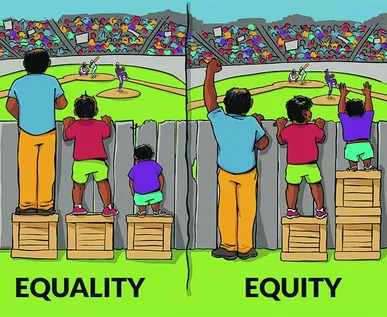
Move over Equality, Equity is the new kid in town: Here’s what it means
Tom Underhill
Date posted: 1 May 2024
Over the past few years, corporate HR departments and public bodies have quietly been wielding their Tipp-Ex in a bulk deletion of the letters ‘a’ and ‘l’. ‘Equality’ has been changed to ‘equity’ in a mass rebranding of EDI (Equity, Diversity and Inclusion) departments and initiatives.
Or maybe it wasn’t quiet: perhaps in your experience it was heralded with great fanfare. Either way, this deletion represents a significant extension of the EDI mission, now almost synonymous with the one term, Equity. So what is Equity, what does this change imply, and how should we think Christianly about these matters?
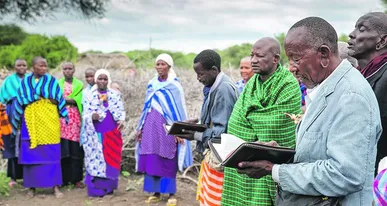
What is the value of running intensive preaching training weeks cross-culturally?
Neil Watkinson
Date posted: 1 May 2024
Having been involved in short intensive weeks of preaching training for pastor-preachers and Bible teachers in Africa and Asia for the last 17 years – six of them based in SE Asia with Crosslinks – it’s been good to reflect on the question: ‘Of what value are these – do they not simply run the risk of cultural imperialism, even in preaching style?’
Local churches across the globe are growing without us, as Christ is proclaimed and the gospel bears fruit. So why do such Bible teaching and preaching training?
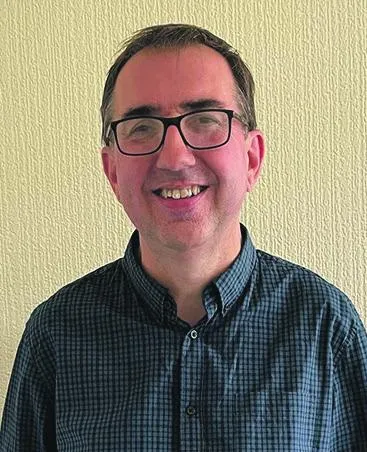
Ten Questions: Obedience and tribalism
William Wilson
1. How did you become a Christian?
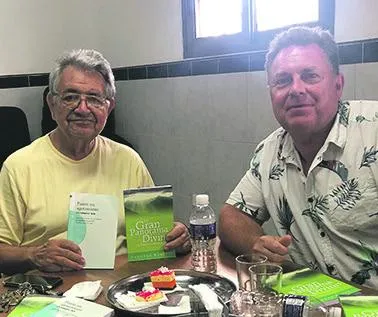
Ten Questions: Addressing your own heart
Carl Chambers
1. How did you become a Christian?
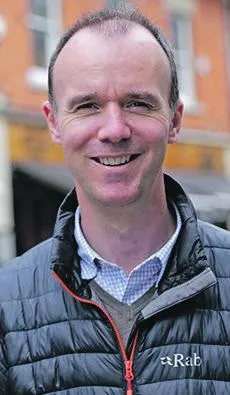
Ten Questions: Is our gospel ‘too safe’?
Paul Woolley
1. How did you become a Christian?

Contagious holiness in contentious settings? Making holy the unholy
Craig Blomberg
Date posted: 1 Mar 2024
In the ancient Middle East, people took hospitality more seriously than most of us, and were more guarded with whom they ate. Most cultures had dietary restrictions and taboos. In some instances, eating the wrong food could render a person ritually unclean.
But whereas the Pharisees avoided contact with ‘sinners’ so that they would not become ritually unclean, Jesus befriended sinners – because He believed that His holiness was contagious.
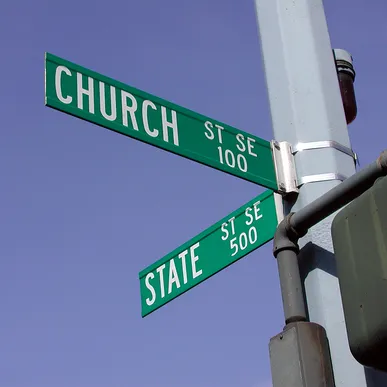
Are you ‘two-kingdoms’ or ‘transformationist’?
Al Gibbs
Date posted: 1 Jan 2024
One of the perennial questions that Christians ask is how the church should engage with society.
The Bible is clear that individual Christians should share God’s love with everyone in the contexts that God has placed them, but to what extent should the church, as the church, seek to influence society? There are several ways of addressing this question, but in recent years many evangelicals have gravitated to one of two paradigms – either a two-kingdoms model, or a transformationist model. These models or views can get complicated, but it’s useful for Christians to have a basic sense of the strengths and weaknesses of each, as well as being aware of the history.
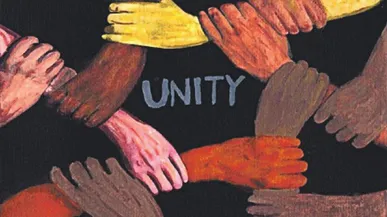
What is evangelical unity? Does it even matter?

Graham Nicholls
Date posted: 1 Nov 2023
What is evangelical unity and does it matter? And anyway, who’s to say what an evangelical actually is, and even then, what would visible evangelical unity look like?
That was part of our discussion at the autumn meeting of the Affinity Council – a group of leaders from churches and Christian organisations that help guide Affinity as we set our priorities.

Would you be able to spot a narcissist?
John Steley
Date posted: 1 Nov 2023
When we think of the word ‘narcissism’ we may imagine people taking selfies, maintaining an attractive image on social media or something similar. True narcissism, however, is something far more serious.
It destroys communities, churches, marriages, families and individuals. It is not just a case of people showing-off, annoying as that may be. True narcissism is destructive and it needs to be understood. That is why I have written the booklet.* It is a warning for all who work with people – that is all of us.

‘I thought, wow, that is three seismic events in one year...’

John Woods
Date posted: 1 Oct 2023
Andrew Wilson is based in Eastbourne and serves as the Teaching Pastor at King’s Church London.
Andrew will be familiar to many from his books, including The God of All Things and 1 Corinthians for Today, the Think Theology website, and his regular columns in US magazine, Christianity Today. Our Reviews Editor John Woods was pleased to have the opportunity to chat with Andrew about his latest book Remaking the World: How 1776 Created the Post-Christian West, which is now hot off the press from Crossway.
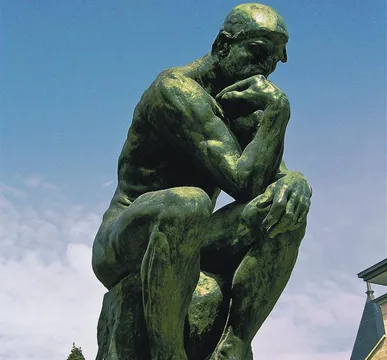
Auguste Rodin’s Thinker and the works of Christ
R.A. Miller
Date posted: 1 Sep 2023
‘The former treatise have I made, O Theophilus, of all that Jesus began both to do and teach’ (Acts 1:1).
Auguste Rodin is one of the most famous artists of the last few centuries, specifically in the field of sculpting. If you are unfamiliar with his name, perhaps you will recognise his most famous piece, The Thinker. The statue was originally a part of a series of sculptures based on Dante’s Inferno. Initially small in size, The Thinker was eventually recast into the monument-size work that most of us would recognise. Today, different versions of this pensive piece can be found around the world in places like Paris, San Francisco, Buenos Aires, and Stockholm.

How should we respond to the world’s poorest?
Justin Hall
Date posted: 1 Sep 2023
Living in a post-Covid, post-Brexit UK has been, and will continue to be, challenging. Considering these realities, how is the Christian and the church in the UK to respond to the suffering of the poor, not only in this country, but in other nations too?
There is a fascinating encounter in Acts 10 that shows the gospel door to the Gentiles being flung wide open. What necessitated this glorious opportunity was an encounter in heaven wherein a memorial was brought before God consisting of the prayers of Cornelius, a Roman Centurion, and a copy of his financial records – specifically, that he gave much to the poor. It’s also interesting to note that Cornelius was stationed in the region of Israel during Rome’s occupation. This was not an easy time for anyone, and yet Cornelius’ financial generosity can be seen overflowing to those who were of a different nationality and who, to some degree, were antagonistic and unsupportive of who he was and what he represented.
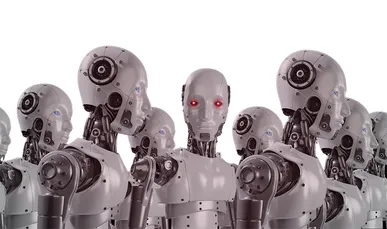
AI – our unnecessary angst?

Nicola Laver
Date posted: 1 Oct 2023
If you’ve seen Mission Impossible: Dead Reckoning, you’ll know the hunt is on for the key to a powerful sentient AI entity – a villainous entity that threatens to unleash god-like omnipotence over the entire world.
It’s a timely movie, illustrating the potential (if fictional) power of artificial intelligence; it’s prescience wasn’t lost on me (I watched it the same night I’d finished the first part of this article).
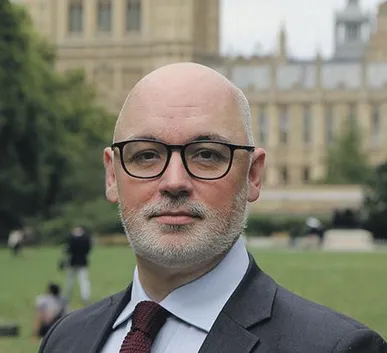
Ten Questions: Dad jokes and Spurgeon
Ross Hendry
1. How did you become a Christian?
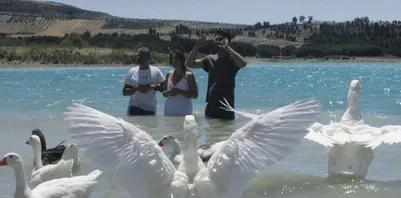
Keswick: ‘My life is now full of colour and meaning…’
Hélder Favorin
Date posted: 1 Aug 2023
Keswick speaker Hélder Favorin writes: Amalia, from Eastern Europe, shared these words: ‘I turned 20 recently and I cannot stop appreciating how full of colour and meaning my life has become. I feel secure and confident about my future. I’ve had anxiety attacks and even a few severe panic attacks; I couldn’t handle it alone. But because of my faith in Jesus, I have found peace and protection. He is my rock and I know that I can rely on Him in any situation.’(1)
Amalia’s honest testimony may feel like an oasis in the desert-like spiritual landscape of European youth, the most secularised, atheistic and agnostic demographic in the world. At the same time there might be many more oases – and even rivers of God’s activity among youth in Europe – than we realise. The tide keeps turning.
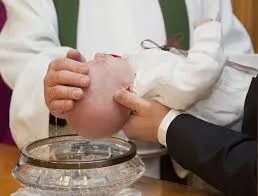
When a ‘naming day’ replaces a Christian prayer
Kevin Bettany
Date posted: 1 Sep 2023
A few weeks ago, on a Saturday afternoon in the beautiful countryside setting of Devon, an event involving about 50 friends and family gathered to mark our latest grandson’s birth. Called a ‘naming day’, it represented a kind of non-Christian christening.
Partly, perhaps because paganism pre-dates Christianity, my son and his partner hoped, like themselves, that everyone would be touched by a deeper and more meaningful experience of creation. Obviously, as infants, we would have been present when our parents had us either christened with names or prayed over with thanks to God. This event was markedly different and more interactively engaging than a traditional Christian service. As the ceremony began all those present were recognised as having different religious or non-religious backgrounds. This implied, for me at least, that some unspecified acceptance of religious diversity was expected.
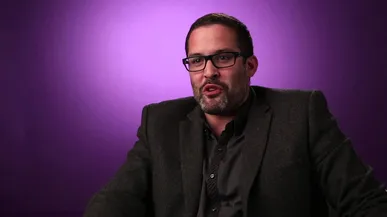
From poles apart to magnetic points

John Woods
Date posted: 1 Jul 2023
en reviews editor John Woods interviews Dr Dan Strange, Director of the Crosslands Forum.
Before joining Crosslands full time, Dan was College Director for Oak Hill Theological College. A former UCCF worker with a PhD in Theology and Religious Studies, Dan lives in Gateshead with his wife Elly and most of their seven children, where they are part of Hope Community Church. He is a trustee of Tyndale House and author of several books including Making Faith Magnetic.
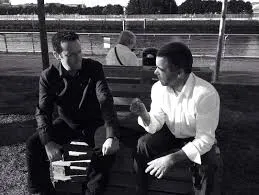
A plea for pastoral brotherhood
Aaron Prelock
Date posted: 1 Aug 2023
Between 1979 and 1999 the Pope, John Paul II, published a collection of essays titled ‘Letters to My Brother Priests’. That sentiment, that his fellow clergy were his brothers, is something we would do well to learn from in our Protestant circles.
Those who serve Christ’s sheep as shepherds should see themselves as being in a spiritual brotherhood, a brotherhood that’s in desperate need of each other. The church has struggled with pastoral abuse, scandals, burnouts, and dropouts. The last few years of Covid, war, civil unrest and political instability have only heightened the weight carried by pastors. These trials have taken their toll. But where are pastors to turn when they need help?